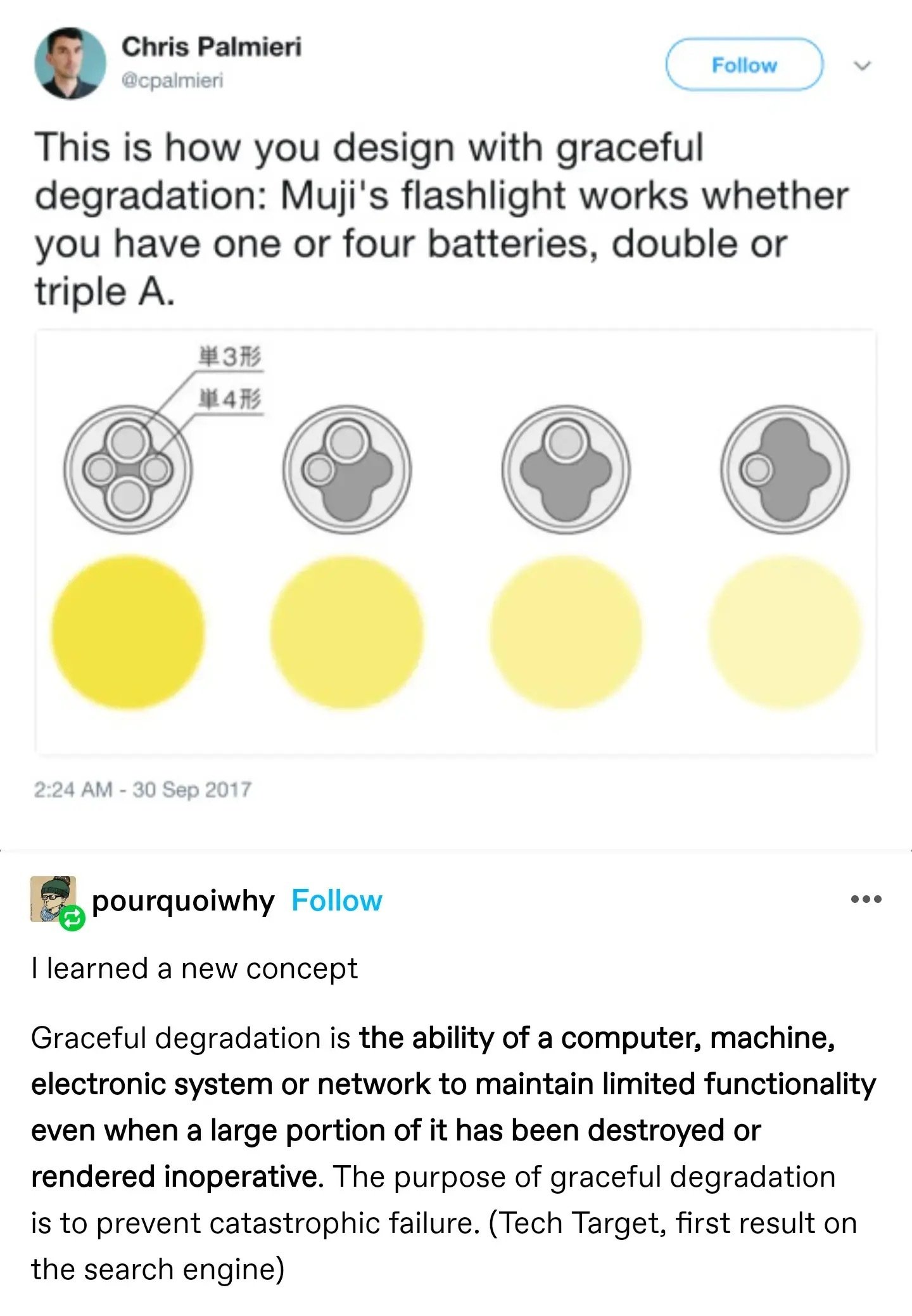this post was submitted on 14 Oct 2023
706 points (95.6% liked)
Buy it for Life
4219 readers
3 users here now
A place to share practical, durable and quality made products that are made to last, with an emphasis on upcycled and sustainable products!
Guidelines:
Things that are well-made and durable (even if they won't last a lifetime) are A-Okay!
Unlike that other BIFL place, Home-made and DIY items are encouraged here, as long as some form of instruction is included in the body of the post.
Videos links are not allowed as post titles, but you may use them in a text post.
A limited amount of self-promotion is accepted, IF the item you are selling aligns with this criteria:
- The item must be made with sustainable or recycled materials.
- If electronic in some way, the item must be open-source.
- The item must be user-serviceable (if applicable).
- You cannot be a large corporation.
- The post must be clearly marked with a [Self Promotion] tag in your title.
founded 1 year ago
MODERATORS
you are viewing a single comment's thread
view the rest of the comments
view the rest of the comments


Escalators vs elevators is maybe a good example of the concept in theory, but in practice escalators are the worse design of the two, and they don't necessarily compete anyway.
Escalators are either slightly faster stairs or stairs for the sedentary. Their only practical advantage is clearing high-volume areas quickly, like transit stations. But otherwise, they are worse stairs - costly, narrow, power consuming mechanical stairs that require regular maintenance. Elevators are an accessibility feature. They allow easy movement of the handicapped and large cargo, and can move many, many floors quickly. Nobody is taking escalators to the 57th floor of a building.
Not to say escalators don't have that advantage of failing in a useful way, just that they don't do anything stairs don't already do. Nothing else really does what elevators do.
Better example may be, say, ebikes or hybrid cars, provided they don't lock up the conventional drive system in the event the electric portion fails.
Agreed, as I mentioned that's the context in which I learnt of the concept, maybe because it's the easiest to grasp for a layman, but it's certainly not the best as you demonstrated. I still would probably use it to explain because it's a known quantity, but I agree with your point.